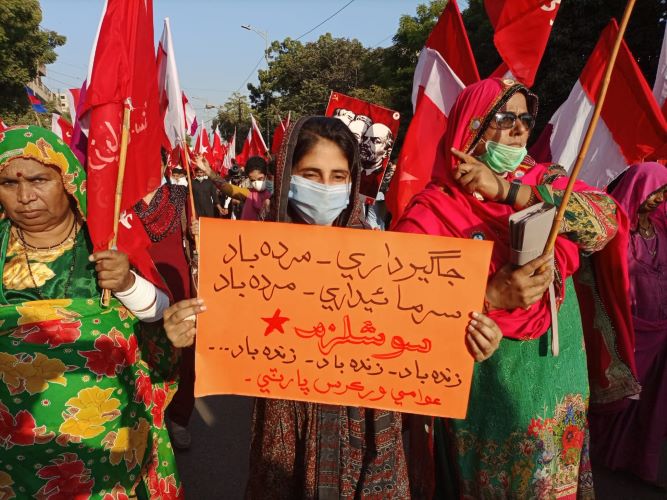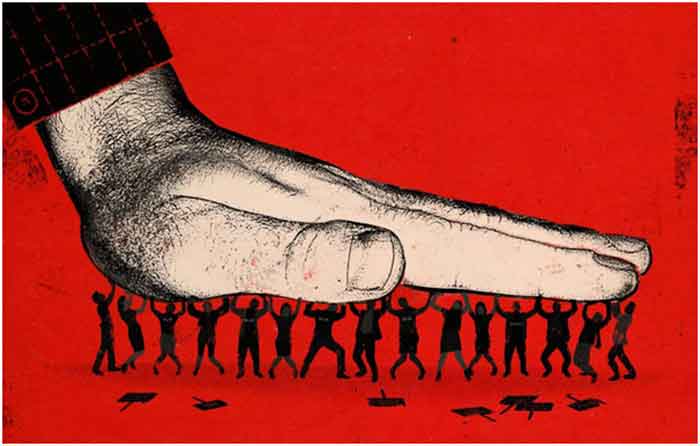
The province is witnessing a transformative moment that indicates the possibility of uprooting this exploitative system
SHOUKAT LOHAR
Feudalism has long been deeply entrenched in the social fabric of Sindh, a province in Pakistan. The system, characterized by the concentration of land ownership and power in the hands of a few wealthy landlords, has perpetuated socio-economic inequalities and hindered progress in the region. However, recent shifts in societal dynamics, political movements, and growing awareness among the masses suggest that the time may have arrived for the uprooting of feudalism in Sindh. This article explores the factors contributing to this transformative moment and examines the potential implications for the province.
Changing Socio-Political Landscape
Over the past decade, Sindh has witnessed a significant transformation in its socio-political landscape. The rise of political parties advocating for the rights of marginalized communities, has challenged the dominance of feudal lords. These parties have been instrumental in raising awareness about the exploitative nature of feudalism and advocating for land reforms and equitable distribution of resources.
Concentration of land ownership and power in the hands of a few wealthy landlords, has perpetuated socio-economic inequalities and hindered progress

Rise of Civil Society Movements
Civil society movements and grassroots organizations have played a crucial role in mobilizing public opinion against feudalism in Sindh. Activists, intellectuals, and human rights organizations have organized protests, conducted research, and engaged in advocacy to highlight the systemic injustices perpetuated by feudal landlords. These movements have empowered marginalized communities and provided them with a platform to voice their grievances.
Increasing Landlessness and Economic Disparity
The concentration of land ownership in the hands of feudal lords has resulted in a high level of landlessness and economic disparity among the rural population of Sindh. The majority of peasants and landless farmers have been trapped in a cycle of poverty and exploitation, with limited access to education, healthcare, and basic amenities. This growing economic divide has created a sense of discontent and an urgent need for change.
Awareness and Education
Access to education and awareness campaigns have played a vital role in challenging the entrenched feudal system. Increased literacy rates and awareness about individual rights have empowered the masses to question the legitimacy of feudal control over land and resources. Education has also provided individuals with the tools to organize and demand their rights, leading to a groundswell of support for land reforms and social justice.
Political Will and Legislative Reforms
Political will and legislative reforms are crucial for uprooting feudalism in Sindh. Land reform policies aimed at distributing land to landless farmers, implementing tenancy reforms, and curbing the power of feudal landlords have gained traction in recent years. The implementation of these reforms would empower rural communities, improve their socio-economic conditions, and reduce the influence of feudal lords in decision-making processes.
Conclusion
While feudalism in Sindh has deep historical roots, the province is witnessing a transformative moment that indicates the possibility of uprooting this exploitative system. Changing socio-political dynamics, the rise of civil society movements, increasing awareness, and political will have created an environment conducive to dismantling feudalism. However, the road ahead is challenging, and the struggle for land reforms and social justice continues. It is essential for policymakers, civil society, and the masses to collaborate and work towards a more equitable and progressive society in Sindh, where the rights and well-being of all individuals are protected and respected.
______________
 Shoukat Lohar is Assistant professor in English at Mehran University of Engineering and Technology Jamshoro. He can be reached at Shoukat.ali@faculty.muet.edu.pk
Shoukat Lohar is Assistant professor in English at Mehran University of Engineering and Technology Jamshoro. He can be reached at Shoukat.ali@faculty.muet.edu.pk